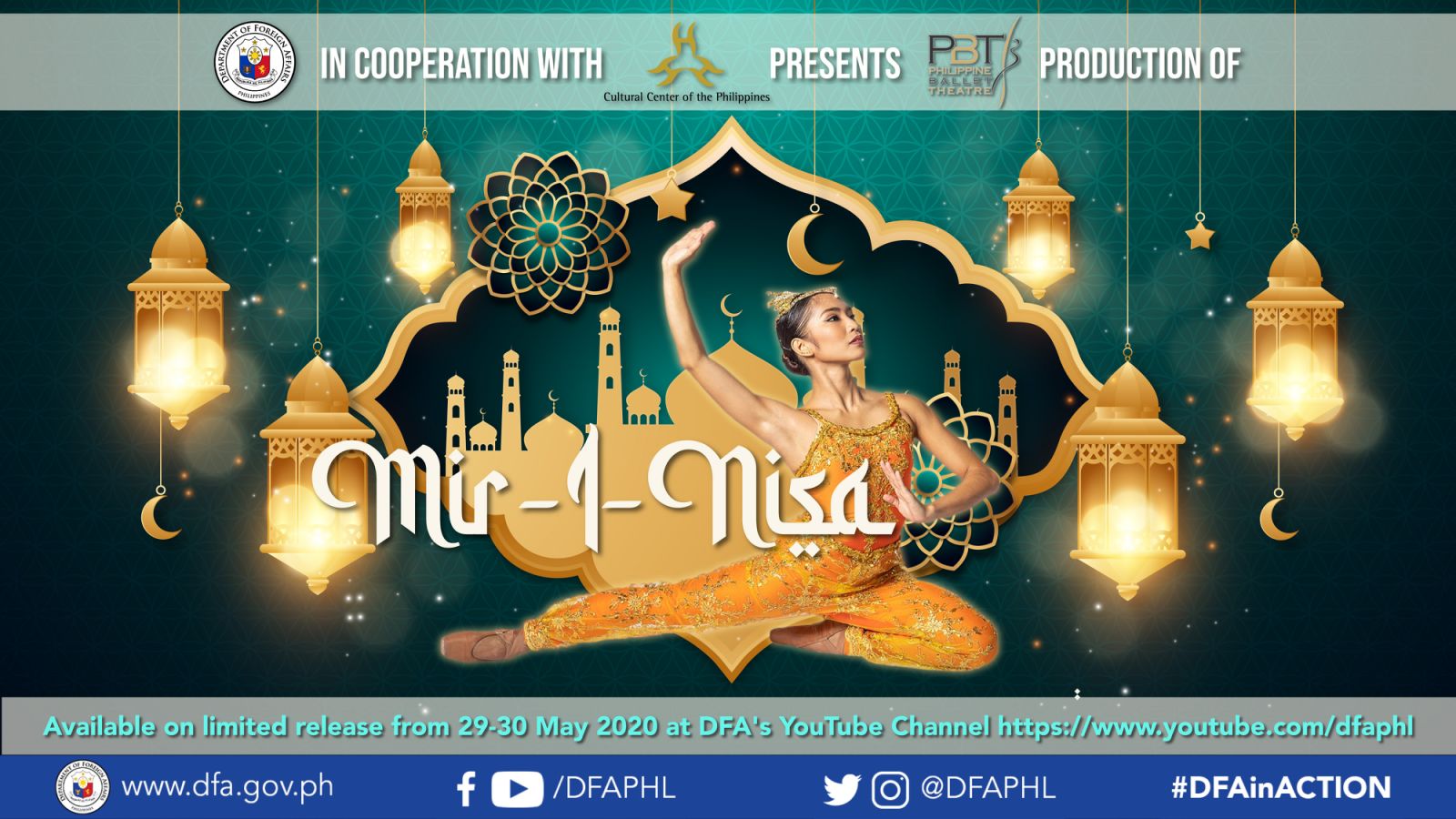INVITATION TO THE SPECIAL SCREENING OF “Mir-I-Nisa” on DFA’s YouTube Channel

In celebration of Eid’l Fitr or the Feast of Ramadan, the Department of Foreign Affairs (DFA), in cooperation with the Cultural Center of the Philippines (CCP), will stream online the Philippine Ballet Theatre’s (PBT) production of “Mir-I-nisa,” a three-act ballet based on the award winning story by National Artist for Literature Jose Garcia Villa.
The ballet production of “Mir-I-Nisa,” which premiered in 1969 during the inaugural season of the CCP, was restaged last year to commemorate CCP’s 50th anniversary. The recording from last year’s show is available on a limited 48-hour free screening on 29-30 May 2020 through the DFA YouTube channel: https://www.youtube.com/watch?v=XzWfM6099lk.
Set in a pearl-diving community in Mindanao, the ballet tells the story of Muslim Princess Mir-i-nisa and two men, the noble Tasmi and the arrogant Achmed, who compete for her love. Though arranged marriages may no longer be common, winning someone’s love is never a thing of the past. Ninety-one years after the story was first published in 1929, the themes espoused in the story are still relevant today.
The libretto of this truly Filipino three-act production of the PBT was originally choreographed by its founders, Julie Borromeo and Felicitas Radaic. The lead role is played by Ma. Regina Amirhussin-Magbitang, who traces her roots from Siasu, Sulu. The roles of Tasmi and Achmed, on the other hand, are played by Matthew Davo and Julafer Fegarido, respectively.
The colorful sights of indigenous live kulintang ensemble of the Philippine Barangay Folk Dance Troupe Rondalla provides an authentic Mindanao experience to the production. The Muslim scarves and fans, as worn and performed by the University of the East Dance Troupe, was interspersed in the ballet production to showcase how both old and new can blend harmoniously.
The project is spearheaded by the DFA’s Office of Strategic Communication and Research in partnership with the Office of Middle East and African Affairs (OMEAA) as a way to celebrate with the Muslim communities here and abroad. END
